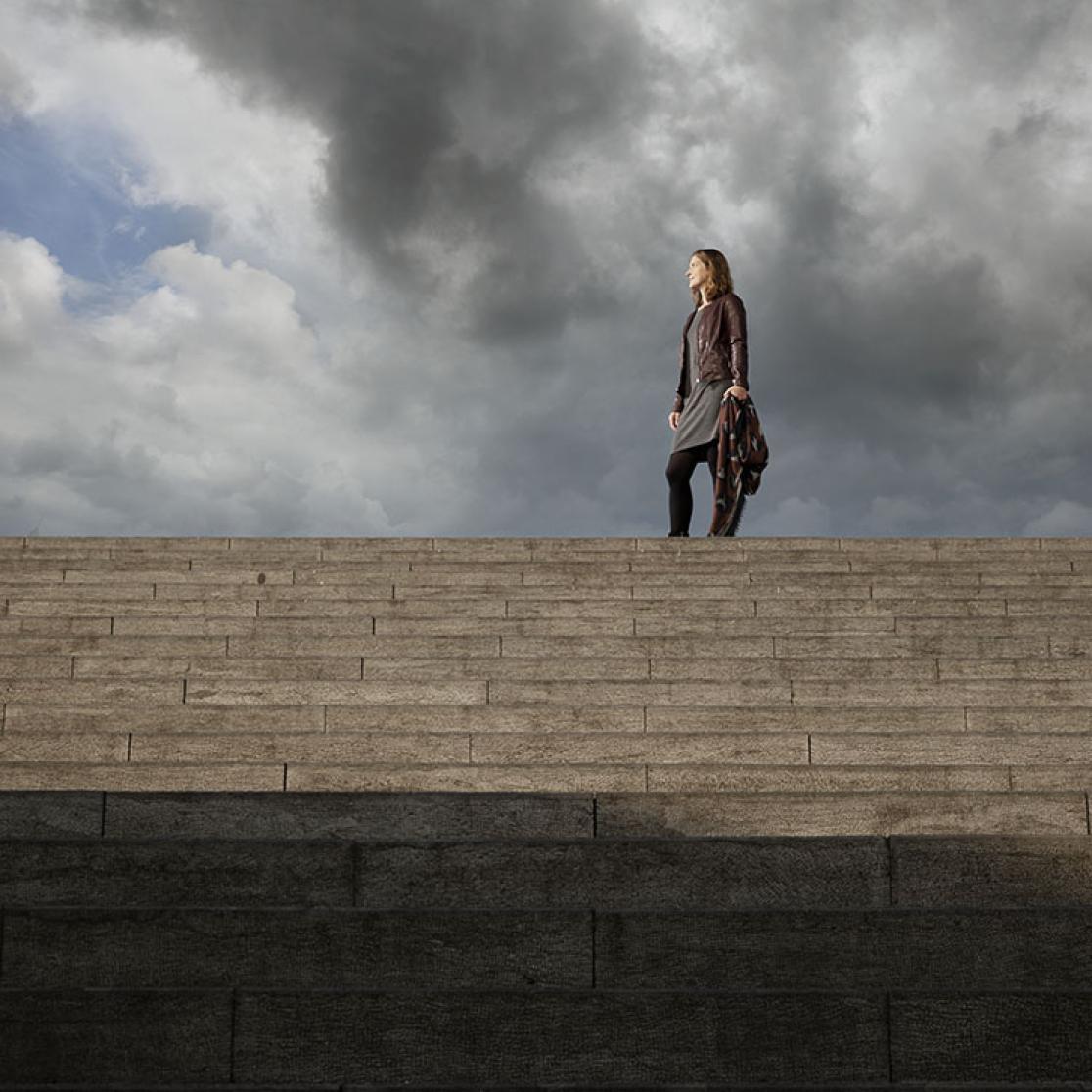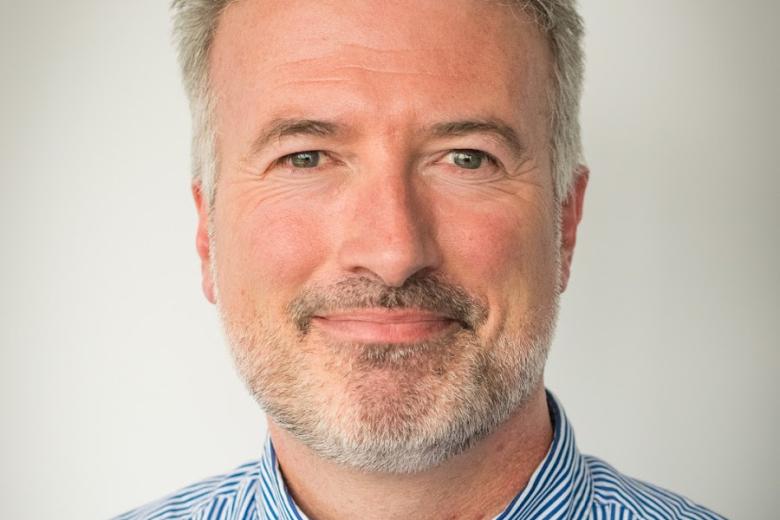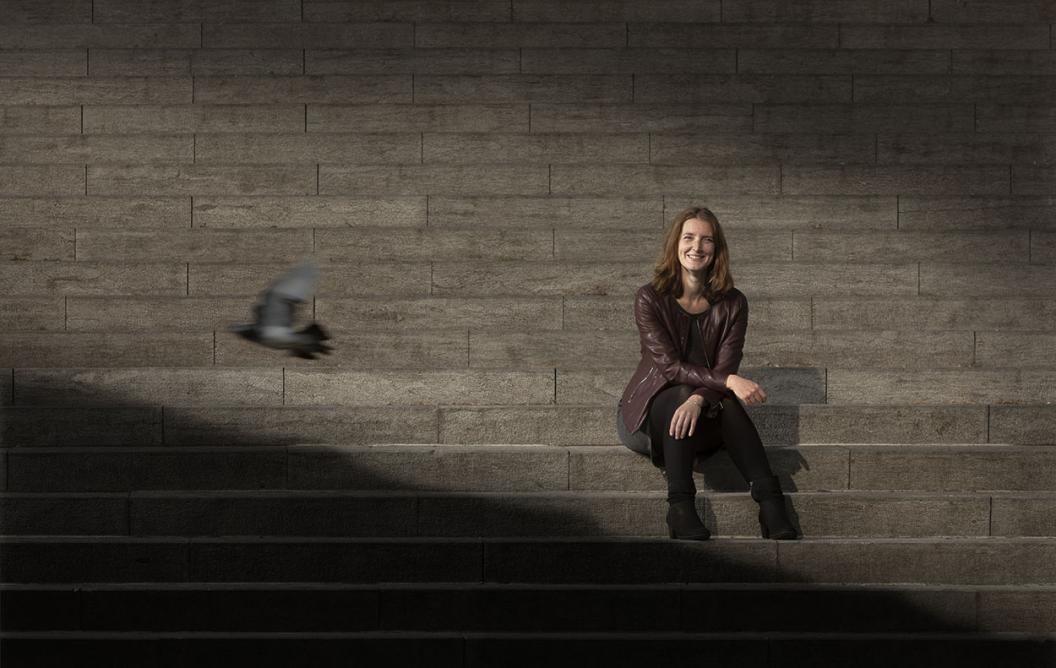Vulnerable victims can use all the support they can get
Psst, psst … meow! Sound familiar? Being hissed, whistled or meowed at on the street is a familiar experience for almost every woman. But that may be about to change: sexual harassment in public is becoming a punishable offence. It’s a good idea, says Suzan van der Aa, professor of Criminal Law and Criminal Procedure, but one that doesn’t go far enough. “Sexual harassment in the workplace is common too, and usually has a greater impact on the victims.”
For quite some time she was on the fence about the criminalisation of sexual harassment in public. “Maybe because I too have normalised this behaviour. When you’re of a certain age and you go out, you’re looked at, pinched, addressed in ways that have nothing to do with respectful flirting. We’ve all experienced it.” Still, Suzan van der Aa agrees with the proposed criminalisation. “It’s harmful behaviour and society has changed, not least as a result of the #MeToo movement. It’s no longer seen as acceptable.”
Sexual harassment in public is framed in the bill—which has yet to pass through the Senate and House of Representatives—as a violation of public order. The aim is to protect the collective interest; everyone should be able to enjoy public space freely. This includes the internet and social media.
But exactly what constitutes sexual harassment remains a thorny question. Where do you draw the line between ‘normal’ flirting and sexually inappropriate behaviour? The parliamentary documents provide some suggestions, but it is largely a matter to be decided in the courts, says Van der Aa. “You really have to be approached sexually in an intrusive way. That depends on the context. One person hissing at you during the day is very different from a large group at night.”
Workplace
It was the #MeToo movement that shone a spotlight internationally on the severity and extent of sexually inappropriate behaviour. This often involved sexual harassment in the workplace, the most notorious example being the abuse by film producer Harvey Weinstein. Sexual harassment in the workplace does not, however, fall under the proposed criminalisation. A missed opportunity, says Van der Aa.
The likeliest stalker is the archetypal ex-partner; in this case, the risk of escalation is greatest. “Stalkers can not only have a huge impact on your life, but are also laborious to get rid of. How do you prove that your ex-partner showed up on your doorstep again yesterday if there were no witnesses? You have to record a number of incidents and substantiate them with evidence, which calls for a great deal of patience. The murder of high school student Hümeyra, which has received a lot of media coverage, shows how horribly things can get out of hand.”
Vulnerable victims
Van der Aa recently conducted a study on hate crimes: offenses motivated by discrimination. “Like beating somebody up for being gay. We know from the literature that it’s precisely the discrimination aspect that causes hate-crime victims to be much more affected, and also less satisfied with the response of the judiciary and the police. The research my colleagues and I did confirmed this.”
Although violence against women is a common thread in her research, her focus is not exclusively on female victims. “The overarching theme is vulnerable victims. Victims have long received too little attention; even law faculties are still mainly concerned with offenders and suspects. This group could do with all the support they can get.”

This interview marks International Day for the Elimination of Violence Against Women. As part of the worldwide Orange the World awareness campaign, the UM Law Faculty was lit up orange on Friday, 25 November 2021.
Also read
-
Empowering Smallholder Farmers in the Data Economy: Unlocking Opportunities and Overcoming Obstacles
Frederik Claasen, the head of policy at our partner organisation Solidaridad Network on the opportunities and obstacles facing smallholder farmers in their data ecosystems.
-
The scientist, the chef and her passions
Anne Roefs was awarded a Vici grant of €1.5 million. The professor of Psychology and Neuroscience of Abnormal Eating, was tossing up between a career as a scientist or a top chef.
-

